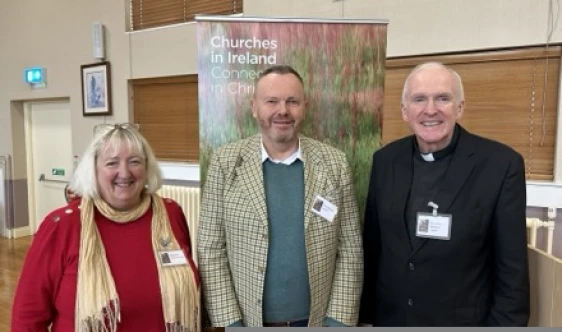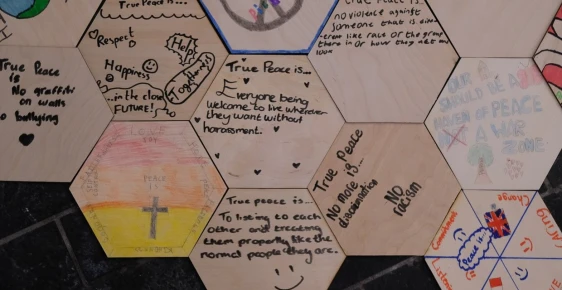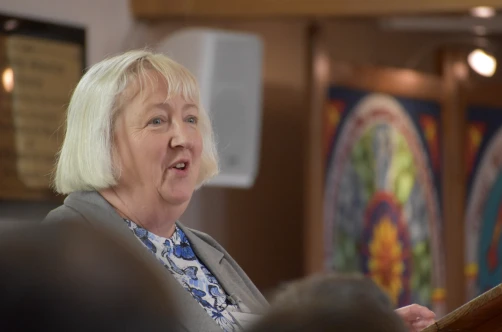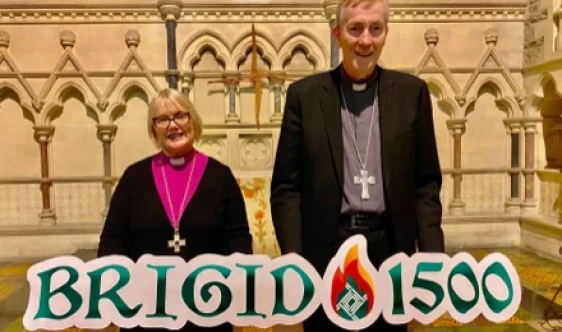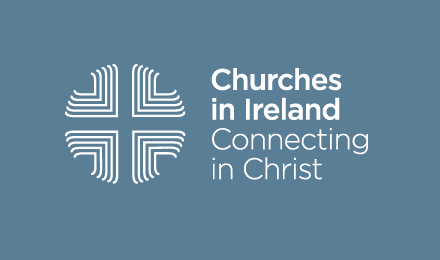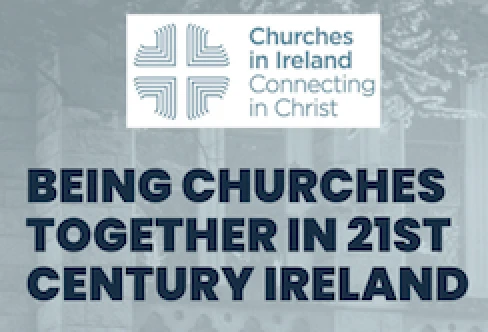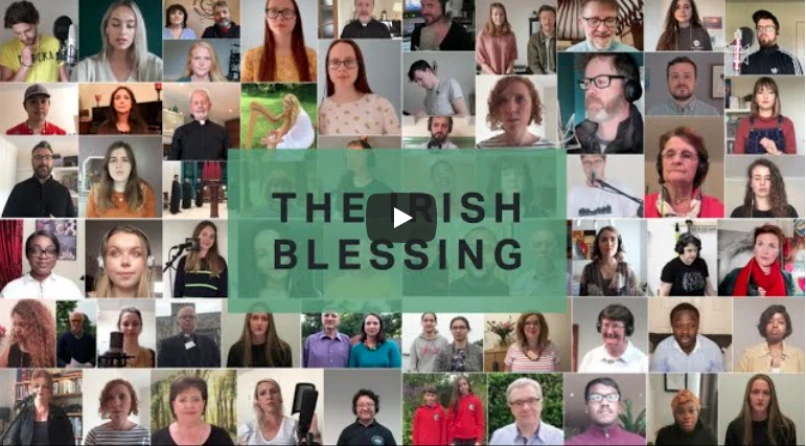
The Irish Council of Churches (ICC) and Irish Inter–Church Meeting (IICM) have been working to capture the experience of our member churches during this time of pandemic.
In particular we have been keen to highlight the good news stories of churches working together to bring hope and support to those who are struggling. We were grateful for the opportunity to reflect with the creators of ‘The Irish Blessing’ as this important initiative passes the 1 million views milestone on YouTube. In this blog series we will discuss: the inspiration for the initiative, the practical considerations involved in a project of this nature, and the contribution of ‘The Irish Blessing’ to a changing church landscape.
A creative response to a heartfelt need
Lockdown ushered in a new era in online Church. The IICM partnered with Dr Gladys Ganiel of Queen’s University Belfast in a research project to assess the impact of the pandemic on faith leaders in Ireland. The research report, entitled ‘People Still Need Us’ found that faith communities had significantly increased their online presence in response to the pandemic, with 71% of respondents providing forms of online in engagement in addition to worship services.
For some this move to the digital space has proved daunting, while others welcomed it enthusiastically. It was hoped from the outset that ‘The Irish Blessing’, could provide a real and tangible way in which the Church might witness together in a post–COVID world. Indeed now that it has been digitally archived, it provides a clear and undeniable benchmark for Christian collaboration, that can never be said to be impossible. In fact, the internet was key to the whole project from beginning to end. It all began with a Facebook post, which led to a connection between Fr Martin Magill in Belfast and Philip McKinley in Dublin, thanks to Rev Arlene Moore in Rathcoole, Co Antrim. This in turn led to the formation of a Production team and Creative team, most of whose members had not previously physically met. It would also have been utterly impossible for a film crew to travel to each church and record each submission, yet with just an individual iPhone or iPad a much wider range of participants was able to take part successfully in the project. The dissemination and reception of the song, well beyond the confines of traditional church networks, also was testament to the exciting possibilities of sharing prayer and the Good News of Jesus Christ, online. It is perhaps too early to say how much of this profound shift to the digital space will remain a permanent feature in church life, but certainly there was an intent on the part of the organisers to ensure that ‘The Irish Blessing’ would be culture–shaping and future–casting.
Part of a Global Movement
The song that started the movement, ‘The Blessing’ by Kari Jobe & Cody Carnes, was recorded and published from Elevation Church, Ballantyne, North Carolina on March 7th 2020 just as COVID–19 and national lockdowns were beginning to spread worldwide. This song was not intended as a specific Coronavirus blessing, but it soon evolved into a global Christian anthem as a counter–balance and prayer for those affected by the pandemic. In mid–April, when lockdown was firmly established, a group of local churches in north–eastern Brazil, followed by Pittsburgh, recorded a collective online version as a tribute to frontline workers. At the end of April, South Africa released the first national Blessing in this same vein. On May 3rd, as the UK was experiencing peak infections and deaths, ‘The Blessing UK’ was launched and it immediately went viral. Indeed the recording received an award from the British Prime Minister Boris Johnson. Since then, over a two–month period, 41 countries or regions recorded their own ‘Blessings’ – 7 in the Americas, 10 in Europe, 11 in Africa and 13 in Asia. This produced some fascinating versions including the Egypt, Cuba and Uzbekistan Blessings, to name just three. This national or regional approach to a single worship song, had never been attempted in such a way before and raised a variety of interesting challenges and opportunities, not least in relation to representation. All in all it has proved a massive, organic global movement of the Holy Spirit, involving thousands of churches and tens of millions of viewers, all without any formal centre of coordination. In so many cases it bridged historic divides, cultures and language groups in a variety of inspirational ways (for example in Cyprus, Sri Lanka and Indonesia) and therefore proved both a blessing for frontline workers, as well as a blessing for the global witness of Churches. In more recent times, published songs have also been applied to new contexts, such as ‘The Lebanon Blessing’ which found traction following the Beirut explosions in August.
A unique contribution from the Church in Ireland
While many countries drew upon Kari Jobe and Cody Carnes’ composition, it was felt that Ireland already possessed so many well–known ‘Blessings’. Indeed Irish tourists shops, culture centres and even pubs worldwide regularly feature tea towels, coffee mugs and posters of various ‘Irish Blessings’. Therefore it seemed right to adapt and re–envision the global movement by drawing upon Ireland’s own ancient, shared Christian heritage, while still operating in other ways within the wider ‘Blessing’ movement (through use of the same methodology, dedication to frontline workers, use of the Aaronic Blessing, the same design and feel, etc…). Indeed this decision to blend approaches proved extremely helpful in drawing together a rich breadth of Irish churches. While 41 nations used the Jobe/Carnes’ composition, others developed their own unique responses. For example churches in Wales recorded ‘Finlandia’ as a ‘Prayer for Wales’ and churches from 50 countries affected by COVID–19 released ‘Amazing Grace’. In addition, on April 12th the Virtual Choir Network from 17 nations released ‘An Irish Blessing’, followed on May 21st by the World Youth Choir and on May 22nd the RTÉ Choirs released ‘Irish Blessing’, each drawing on various arrangements of the prayer ‘May the the road rise to meet you’.
‘The Irish Blessing’ drew on three ancient sources, ‘Be Thou My Vision’, ‘St Patrick’s Breastplate’ and the ‘Aaronic Blessing’ (Numbers 6:23–27). This was a very Trinitarian approach, helping to focus on the power of God – Father, Son and Holy Spirit. Each element resonated on a very deep and profound level with the Production Team through prayer and planning time, as well as the contributing participants. This caused its own renewed learning and engagement with the words, teachings, meanings and contexts of each of the elements. They proved their own source of energy and inspiration through the project. Each were also re–interpreted afresh by the Creative Team and in turn, each individual artist who submitted his/her own vocal or instrumental take. Although ancient and unifying, the three elements also felt fresh and so powerfully relevant to a modern pandemic context.
Fr Martin Magill stated: “The concept of ‘blessing’ is a uniquely religious one. It is deeply Biblical. Indeed it is something that pretty much every church and every believer bestows regularly through prayer and receives through faith from God. It is not something that the State, the economy or other sections of society can authoritatively offer. Therefore it is synonymous and unique to people of faith. And yet it is an offering to the common good that goes beyond the Church. ‘Blessing’ may not always be received, but it can, appropriately, always be offered. The heart of ‘The Irish Blessing’ focused on churches blessing frontline workers and local facilities fighting Coronavirus. This was something every church could agree on, because every church practises it already. It was also distinctly Christian and could make a profound impact for those on the frontline.”
It was also deemed important that ‘The Irish Blessing’, would have a tangible blessing outcome. This was done in two ways. First churches and Christian organisations were encouraged to identify a local facility on the frontline and dedicate their recording to them. The list of facilities appears on the main page of www.theirishblessing.com. Secondly three overseas Christian charities were identified as recipients of any profits raised from the overall project – Trócaire, Christian Aid and Tearfund. It was deemed important that Ireland’s blessing would have a focus on the devastating impact of Coronavirus on the world’s poorest communities.
At the heart of this project was a desire to reflect the rich diversity of Christian experience and witness in Ireland. Philip McKinley describes it in this way: “The work to accomplish a ‘Blessing’ in any country or region raises significant challenges, most especially because of the need to utilise strong, pre–established networks and contacts across the Christian family. However, to accomplish this in Ireland, with its well documented history of religious division, had many unique challenging aspects to it, not least working across two political jurisdictions. While Christian music in Ireland is rich and diverse, not all parts had worked or connected fully together before. Therefore there was a challenge to bridge huge sections of Irish Christianity and its musical traditions, in a new and dynamic way. However from the outset the project seemed bigger than any individual part and had a strong and profound sense of the unity of Christ infused in so many aspects of it. Indeed many of the connections and resources seemed to come only from God and on several occasions the Production Team found themselves using the the word ‘miraculous’ to describe new connections.”
The next blog in this series will examine some of the practical lessons that can be drawn from this experience.
